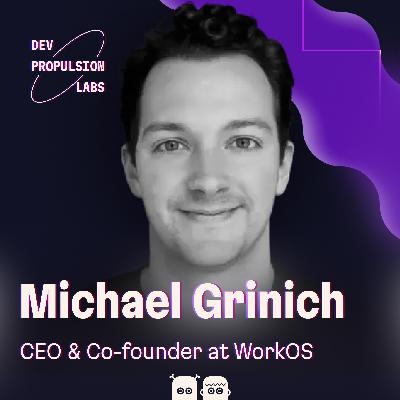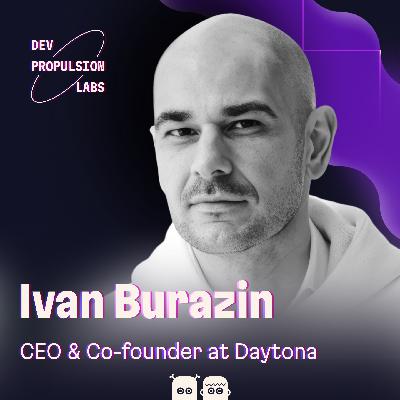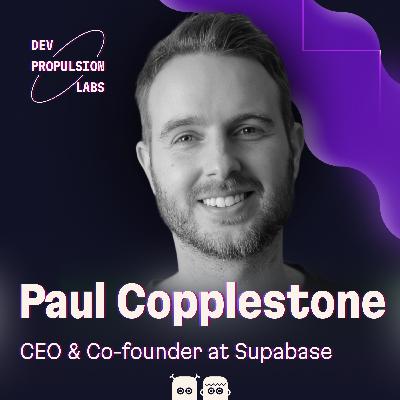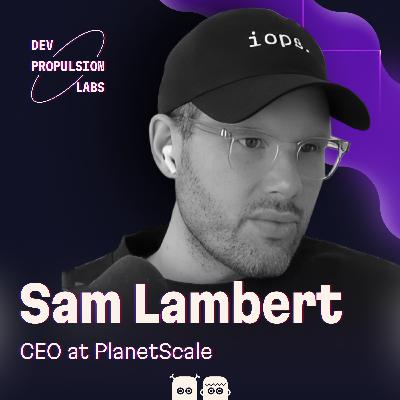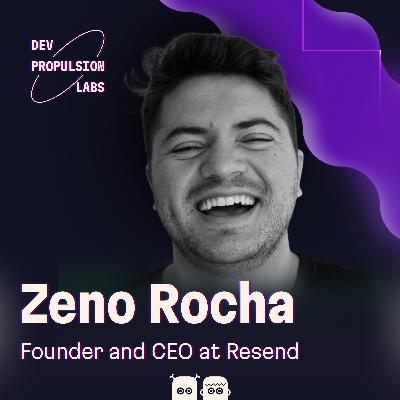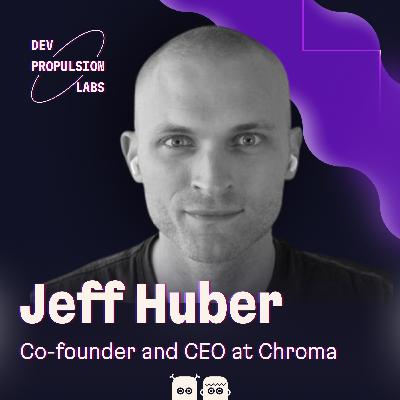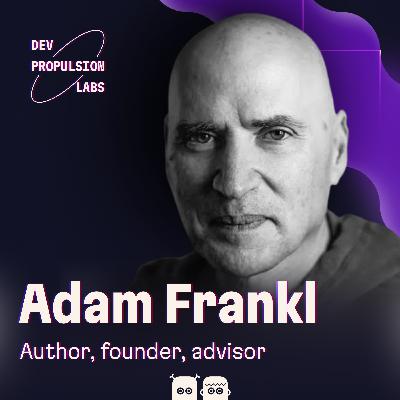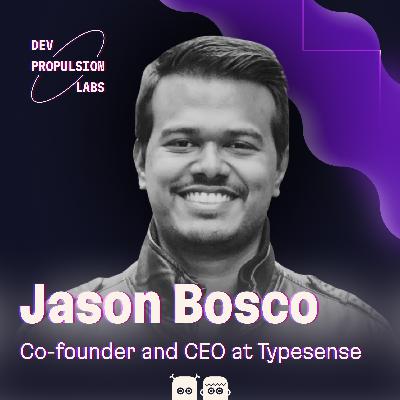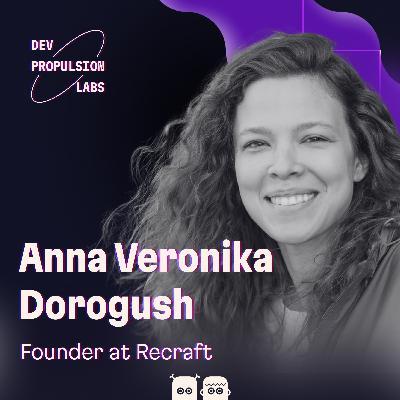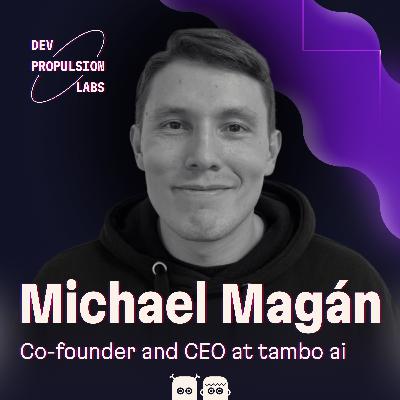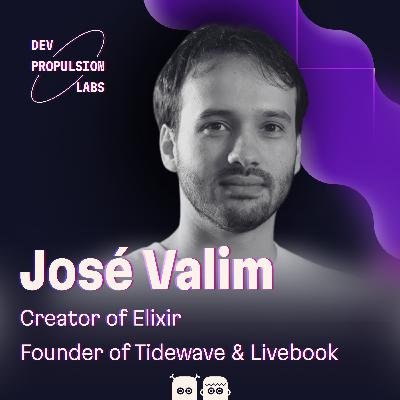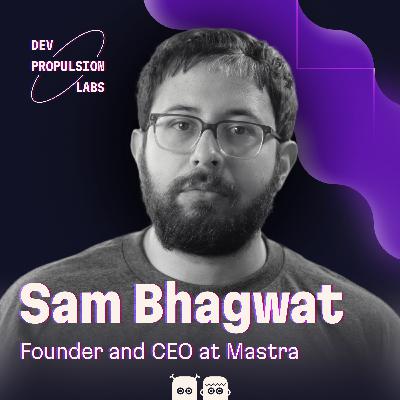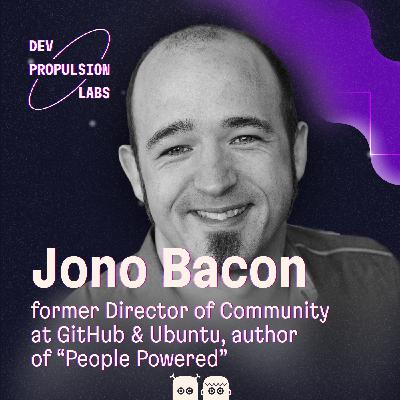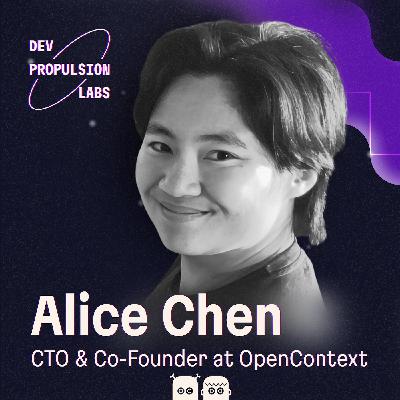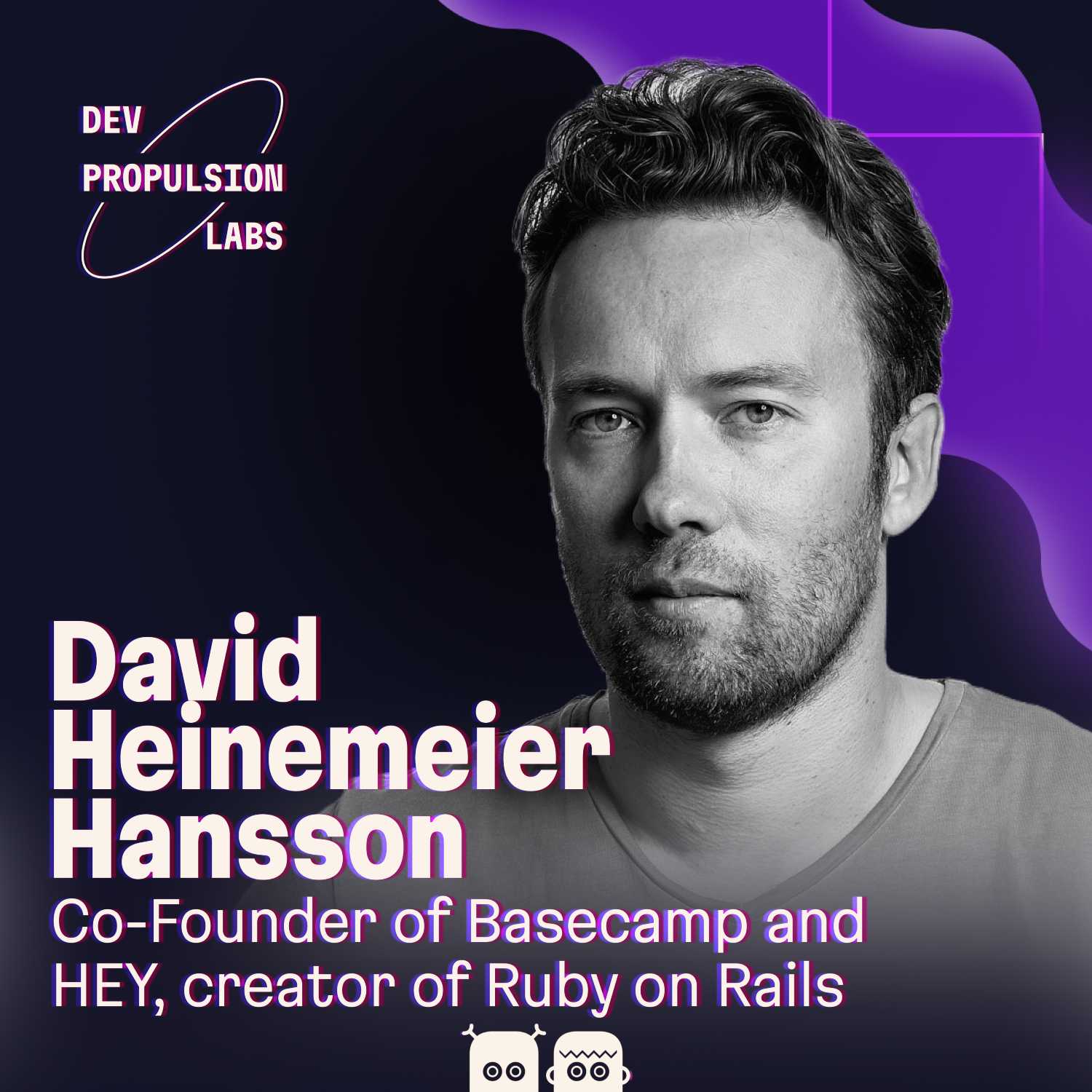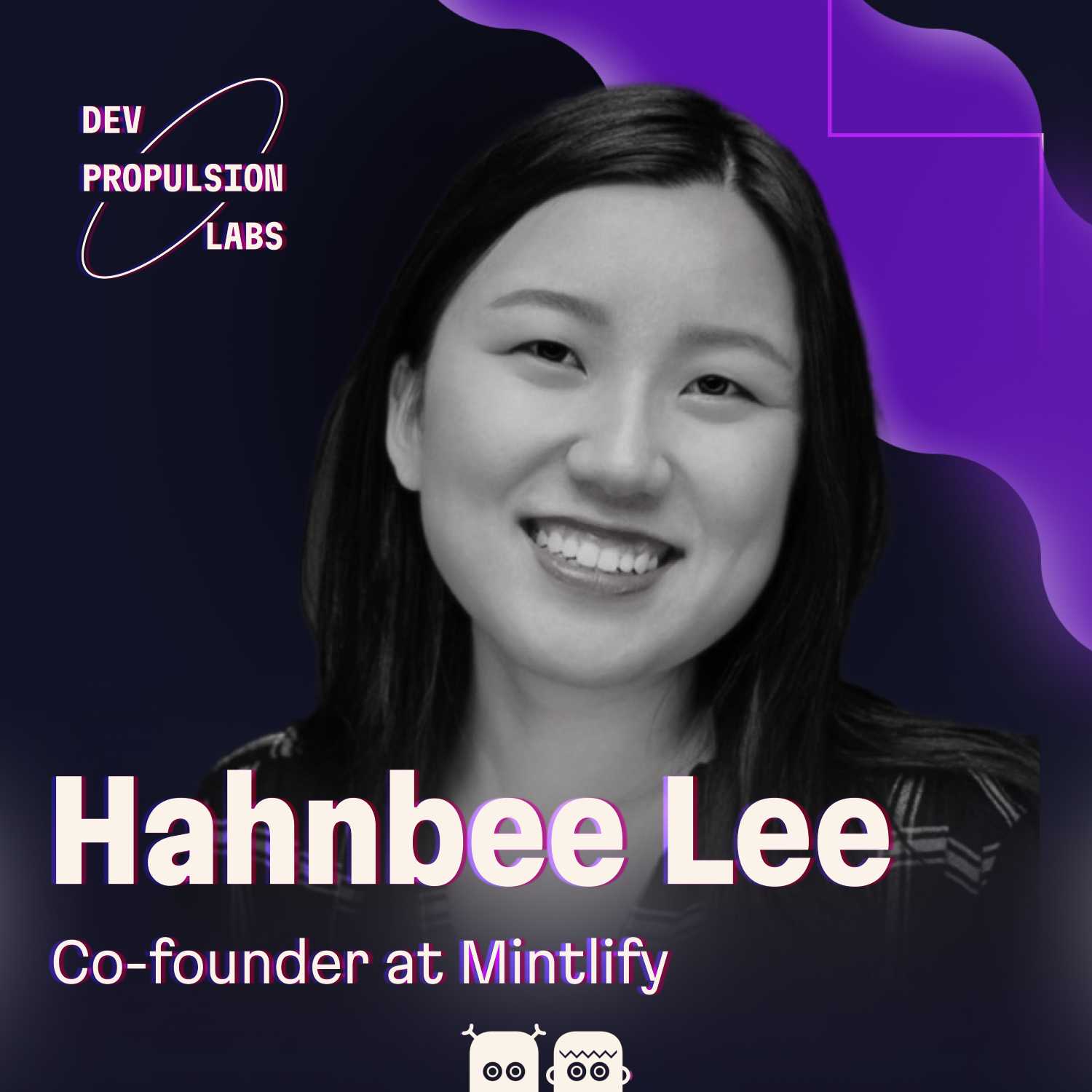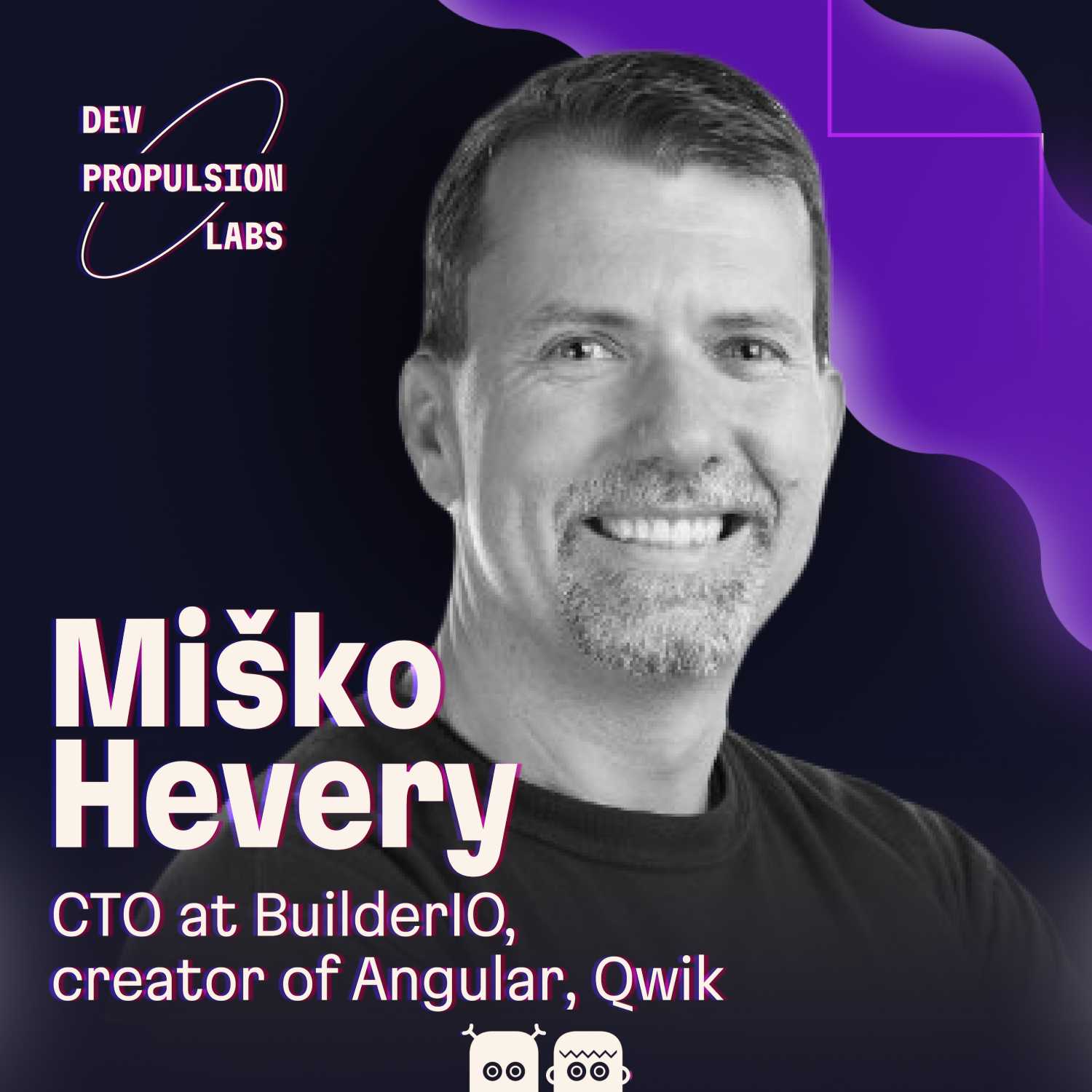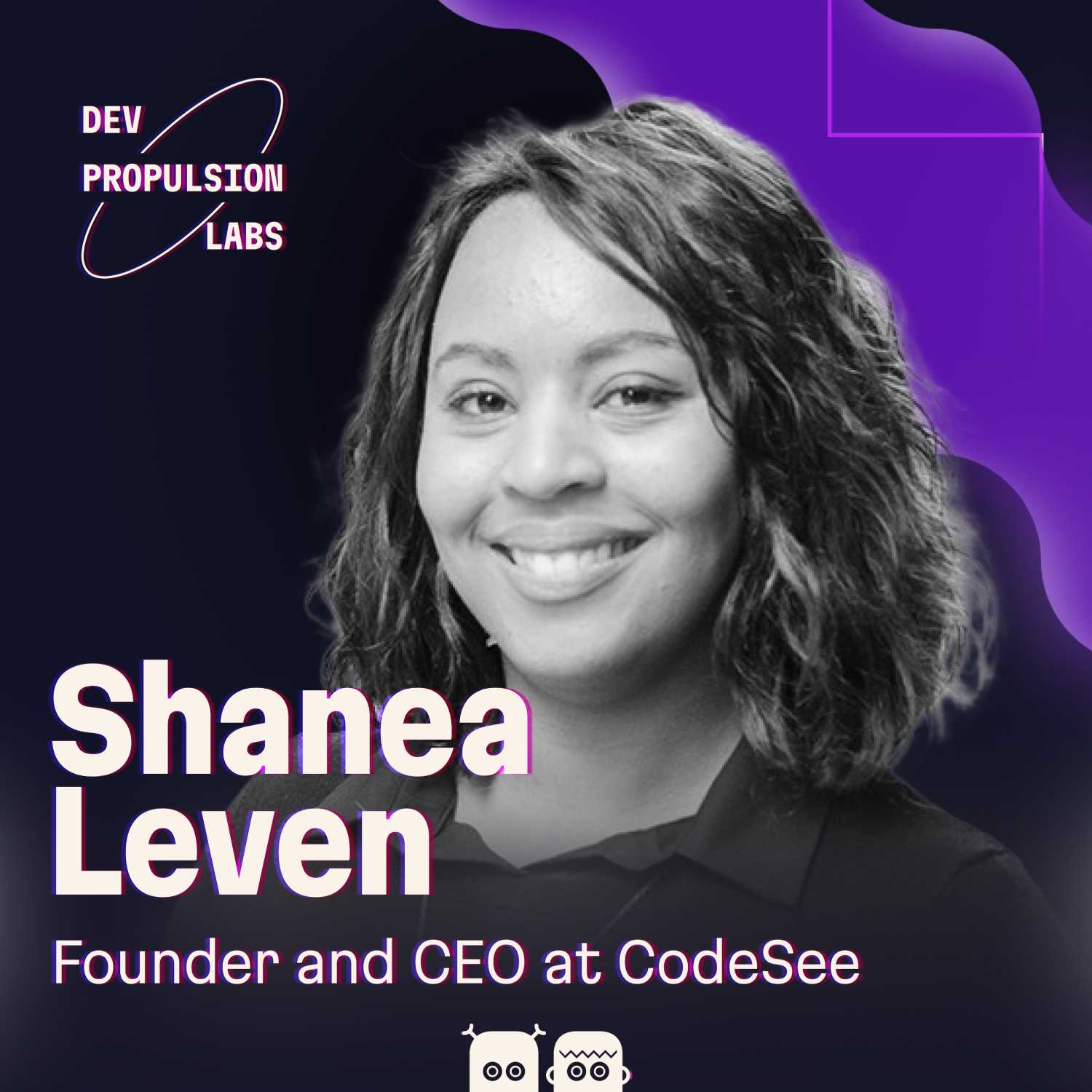Discover Dev Propulsion Labs
Dev Propulsion Labs

Dev Propulsion Labs
Author: Evil Martians
Subscribed: 5Played: 12Subscribe
Share
© Evil Martians 2023
Description
Dev Propulsion Labs is a podcast about the business of developer tools. Hosts from the Evil Martians team interview prominent dev tools founders with the goal of sharing knowledge in the maturing developer tool and commercial open source industry.
25 Episodes
Reverse
In this episode of Dev Propulsion Labs, WorkOS founder Michael Grinich reveals why product always beats sales methodology in enterprise, how being the "plumbing" behind AI companies became his life's work, and why forcing yourself to talk to users is the only algorithm that burns out bad ideas. He shares why WorkOS built in stealth while talking to everyone, the moment he fired his entire marketing team, and how infrastructure companies survive by being better than all their customers combined.Episode notes: https://evilmartians.com/events/podcast-michael-grinich-workosFollow us on X: https://x.com/dpl_podRecorded at Chroma. Vector, full-text, regex, and metadata search. Develop locally and scale to petabytes in the cloud backed by object storage. Serverless search and retrieval that is fast, cheap, and reliable. https://www.trychroma.comEvil Martians is the go-to agency for early-stage developer tools startups: https://evilmartians.com/devtoolsLinks:WorkOS: https://workos.com/Michael Grinich on X: https://x.com/grinichEvil Martians on X: https://x.com/evilmartiansVictoria Melnikova on X: https://x.com/vmelnikova_en
In this episode of Dev Propulsion Labs, Daytona CEO Ivan Burazin reveals why he walked away from $300K ARR to rebuild his company from scratch for the age of AI agents. He explains why agents will outnumber humans "to the power of ten," how Daytona creates composable computers that agents can spin up on demand, and what it means to race competitors while the entire market moves at breakneck speed. Ivan shares hard-won lessons from 16 years building cloud development environments, starting with Codeanywhere in 2009 - a decade before the market was ready.Episode notes: https://evilmartians.com/events/podcast-ivan-burazin-daytonaFollow us on X: https://x.com/dpl_podRecorded at Chroma. Vector, full-text, regex, and metadata search. Develop locally and scale to petabytes in the cloud backed by object storage. Serverless search and retrieval that is fast, cheap, and reliable. https://www.trychroma.comEvil Martians is the go-to agency for early-stage developer tools startups: https://evilmartians.com/devtoolsLinks:Daytona: https://www.daytona.io/Ivan Burazin on X: https://x.com/ivanburazinEvil Martians on X: https://x.com/evilmartiansVictoria Melnikova on X: https://x.com/vmelnikova_enEvil Martians for devtools: https://evilmartians.com/devtools
In this episode of Dev Propulsion Labs, Supabase CEO Paul Copplestone reveals why hiring ex-founders with beaten-down egos builds better products, how internal meme workshops became part of their culture, and why vibe coding isn't a bubble that will burst. He shares the accidental origin of Launch Weeks, explains why Supabase is building for a 30-year timeline, and breaks down how they scaled to 5 million developers across 40 countries with barely any meetings.Episode notes: https://evilmartians.com/events/podcast-paul-copplestone-supabaseFollow us on X: https://x.com/dpl_podRecorded at Chroma. Vector, full-text, regex, and metadata search. Develop locally and scale to petabytes in the cloud backed by object storage. Serverless search and retrieval that is fast, cheap, and reliable. https://www.trychroma.com Evil Martians is the go-to agency for early-stage developer tools startups: https://evilmartians.com/devtoolsLinks:Supabase: https://supabase.comPaul Copplestone on X: https://x.com/kiwicoppleEvil Martians on X: https://x.com/evilmartiansVictoria Melnikova on X: https://x.com/vmelnikova_enEvil Martians for devtools: https://evilmartians.com/devtools
Sam Lambert of PlanetScale reveals how they stayed up during the AWS outage that took down millions of sites, helped grow Vitess usage 61,000% in four years, and why "tier zero" infrastructure demands extreme fault tolerance. He shares the journey from 750-user consultancy to "growing like crazy", why operational excellence beats feature velocity, and what it actually costs to build databases that never go down.Episode notes: https://evilmartians.com/events/podcast-sam-lambert-planetscaleFollow us on X: https://x.com/dpl_podRecorded at Chroma. Vector, full-text, regex, and metadata search. Develop locally and scale to petabytes in the cloud backed by object storage. Serverless search and retrieval that is fast, cheap, and reliable. https://www.trychroma.comEvil Martians is the go-to agency for early-stage developer tools startups: https://evilmartians.com/devtoolsLinks:PlanetScale: https://planetscale.com/Sam Lambert on X: https://x.com/isamlambertEvil Martians on X: https://x.com/evilmartiansVictoria Melnikova on X: https://x.com/vmelnikova_en
Resend founder Zeno Rocha reveals how he built an $18M Series A email API company by obsessing over brand, giving away React Email for free, and rejecting the "ship crap fast" mentality. He shares why seeking rejection accelerates sales, how zero-ego hiring beats talent, and why most dev tools fail by hiding behind GitHub stars instead of charging money.Episode notes: https://evilmartians.com/events/podcast-zeno-rocha-resendFollow us on X: https://x.com/dpl_podRecorded at Chroma. Vector, full-text, regex, and metadata search. Develop locally and scale to petabytes in the cloud backed by object storage. Serverless search and retrieval that is fast, cheap, and reliable. https://www.trychroma.comEvil Martians is the go-to agency for early-stage developer tools startups: https://evilmartians.com/devtoolsLinks:Resend: https://resend.com/Zeno Rocha on X: https://x.com/zenorochaEvil Martians on X: https://x.com/evilmartiansVictoria Melnikova on X: https://x.com/vmelnikova_en
In this episode of Dev Propulsion Labs, Chroma co-founder Jeff Huber explains why "consensus is a death blow" for great products and reveals his framework for commercializing open source: keep the engine open, monetize the car. He breaks down context engineering, why RAG became industry brain rot, and how small opinionated teams with low egos build the best developer tools.Follow us on X: https://x.com/dpl_podEpisode notes: https://evilmartians.com/events/podcast-jeff-huber-chromaEvil Martians is the go-to agency for early-stage developer tools startups: https://evilmartians.com/devtoolsRecorded at Chroma. Vector, full-text, regex, and metadata search. Develop locally and scale to petabytes in the cloud backed by object storage. Serverless search and retrieval that is fast, cheap, and reliable. https://www.trychroma.comLinks:Chroma: https://x.com/trychromaJeff Huber on X: https://x.com/jeffreyhuberEvil Martians on X: https://x.com/evilmartiansVictoria Melnikova on X: https://x.com/vmelnikova_en
Join us for a conversation with Sarah Wooders, CTO & co-founder of Letta AI, as she reveals why LLMs are not there yet and how stateful agents will unlock the next generation of AI applications. From Berkeley PhD to YC alum to building the infrastructure for truly intelligent agents.Key insights from this episode.On the core problem with LLMs:"It's kind of like if you've seen the movie Memento... if you have a person that just forgets every single day or forgets every five minutes... That's basically what LLMs are."Why 2025 feels like the early Internet:"I feel like with AI, this is our version of that. There's just so much opportunity. Everything is so undefined. There's a ton of white space... so much low hanging fruit."The difference between real agents and marketing fluff:"A lot of people just added LLMs into [existing workflows] and then called them an agent... that's inherently still very different from something that's like an agent that has identity, that works autonomously, that learns."On building in the AI boom vs 2020:"Right now is a much better time to be building a startup... the amount of value that's just being created and that you can capture is so much more."What's still missing in AI infrastructure:"MCP is super early... there's a ton of differences in how people implement the protocol. Auth hasn't really been figured out. There's a big lack of standardization."Why open source matters for AI tools:"We want to do that agentic orchestration in an open way... allowing developers to have as much control as possible over their context window, being able to see what tokens are going in and out."Links:Letta AI: https://letta.comSarah Wooders on X: https://x.com/sarahwoodersEvil Martians on X: https://x.com/evilmartiansVictoria Melnikova on X: https://x.com/vmelnikova_enEvil Martians is the go-to agency for early-stage developer tools startups: https://evilmartians.com/devtools#AI #Agents #LLM #Startups #OpenSource #AItooling #StatefulAgents
Join us for an incredible conversation with Adam Frankl - author, advisor, investor, and the final boss of development marketing. In this episode, we dive deep into the biggest challenges facing developer tool startups in 2025 and how to overcome them.On the AI boom opportunity:2025 has gotta be the best year ever for starting a developer tool startup because there is so much chaos, and that's what makes this exciting.The #1 mistake founders make:Problem not product. Become an expert on the problem. Talk about the problem. Write about the problem... Too many founders they wanna talk about the product. They want to demo the product... And quite frankly, no one is interested.Why you need to be obsessed:You have to pick a problem that the problem also picks you. It's the type of problem that you just can't sleep at night because you're thinking about it... You know when the problem is the right problem because it seizes a hold of your brain.The social media strategy that works:Your mechanistic goal is you wanna be posting about this problem every day. Because you want to be the authority on this problem. Authority author, it's the same root. To be an authority, you have to write.On enterprise sales in 2025:Budgets are being cleared for AI investments, and this is astonishing... top executives are basically clearing budget line items say we're gonna invest in AI.Why San Francisco matters:The reason you come to Silicon Valley is the best customers are here. And you're not gonna be closing these tech 100 companies if you are in Tokyo or Lisbon.The game-changing AI workflow:Make a recording. Make a transcript... And then use an LLM to anonymize but consolidate transcripts. And that can be extraordinarily powerful.Links:- Adam's book: "Developer Facing Startup" (Amazon #1 bestseller): https://www.amazon.com/Developer-Facing-Startup-market-developer-facing/dp/B0D4KGHQML- Alchemist Accelerator: https://www.alchemistaccelerator.com/- Evil Martians on X: https://x.com/evilmartians- Victoria Melnikova on X: https://x.com/vmelnikova_enEvil Martians is the go-to agency for early-stage developer tools startups: https://evilmartians.com/devtools#DeveloperTools #StartupMarketing #AI #Enterprise #SanFrancisco #DevTools
Jason Bosco, CEO and co-founder of TypeSense, shares how he and his co-founder built a profitable search engine serving 10 billion searches monthly without taking VC funding. From Dollar Shave Club VP of Engineering to bootstrapped founder, Jason reveals the unconventional path to building sustainable developer tools.Key insights from this episode:"If it is hard for you as a founder to convince someone to pay you, it's never gonna get easier from there." Find what people are willing to pay for early - don't build first and monetize later."We're opinionated and we want search to work out of the box right from the get-go." TypeSense chose simplicity over configurability, targeting 80% of use cases with zero-config search versus Elasticsearch's thousands of parameters."We don't want the gamble on TypeSense the company to end up affecting TypeSense the product." Jason explains why they chose profitability over VC funding to build a multi-generational product without the pressure of 10x returns."Doing dev tools in closed source is like playing it on hard mode." Open source creates better feedback loops with developers, leading to faster product iteration and stronger community adoption.Links:- TypeSense: https://typesense.org/- TypeSense Cloud: https://cloud.typesense.org/- Jason Bosco on X: https://x.com/jasonbosco- Evil Martians on X: https://x.com/evilmartians- Victoria Melnikova on X: https://x.com/vmelnikova_enEvil Martians is the go-to agency for early-stage developer tools startups: https://evilmartians.com/devtools
Anna Veronika Dorogush, founder and CEO of Recraft, reveals how she built one of the world's leading AI image generation platforms by solving real professional design problems instead of chasing AI hype. Some key insights:"My whole back-end team is medalists and finalists of World Championship in programming." Strong people attract strong people, creating a talent density that enables a small team to compete with giants."We are just focused on producing the best models in image generation space for designers, for professional use cases." While others built general AI image generators, Recraft targeted designers' specific needs: brand consistency, style control, and professional workflows. "That's the major differentiator between ourselves and other AI native tools is we are building our technology from scratch in-house. And that allows us to solve for professional tasks." Training proprietary models in-house allows solving for your users' exact problems (controlling styles, brand colors, fonts)."At the first stage, think investors mostly are evaluating founders and founding teams. After that, investors are evaluating product market fit and retention and later, monetization starts to be very important. We've raised three rounds so far and on every one of those rounds, different things were considered very important." Links:Recraft: https://www.recraft.ai/Anna Veronika on X: https://x.com/avwritingEvil Martians on X: https://x.com/evilmartiansVictoria Melnikova on X: https://x.com/vmelnikova_enEvil Martians is the go-to agency for early-stage developer tools startups: https://evilmartians.com/devtools
Evil Martians is the go-to agency for early-stage developer tools startups: https://evilmartians.com/devtoolsLinks:- tambo ai: https://tambo.co/- Michael Magán on X: https://x.com/mrmagan_- Evil Martians on X: https://x.com/evilmartians- Victoria Melnikova on X: https://x.com/vmelnikova_en
José Valim, creator of Elixir and founder of Dashbit, shares how he built one of the most loved programming languages by following curiosity over market trends.Key insights for devtool founders:- Build for yourself first - José's "selfish" approach of creating tools he actually wants to use led to authentic adoption and marketing. When you can explain genuine technical trade-offs instead of chasing trends, developers listen.- Decentralize early - Without Google/Apple-level resources, Elixir succeeded by empowering the community to own different domains (web, ML, embedded) rather than centralizing control.- Make pivotal technical bets - Targeting the battle-tested Erlang VM and enabling the Phoenix framework were key architectural decisions that paid off long-term.- Marketing = explaining trade-offs - Skip the sales pitch. Show developers exactly what they get and what they give up. José's rule: "If all we have is opinions, I prefer mine."- Enable ecosystem growth - Dashbit's consulting reveals adoption friction points, which feed back into language improvements and new open-source projects.Current focus: José is building Tidewave, exploring higher-level AI development tools that understand web frameworks, not just code.Companies using Elixir: Discord, Remote, Supabase, Fly.io, Apple, Toyota, BBC, PepsiCo, MozillaEvil Martians is the go-to agency for early-stage developer tools startups: https://evilmartians.com/devtoolsLinks:- Elixir: https://elixir-lang.org/- Tidewave: https://tidewave.ai/- Livebook: https://livebook.dev/- José Valim on X: https://x.com/josevalim- Evil Martians on X: https://x.com/evilmartians- Victoria Melnikova on X: https://x.com/vmelnikova_en
Adam Wenchel has been building AI infrastructure since before it was cool. As CEO and co-founder of Arthur AI, he's spent six years solving the "last mile problem" - getting AI from impressive demos to reliable production systems. In this conversation, we dive deep into why Adam open sources million-dollar tools, how his enterprise experience at Capital One shaped his approach to developer empathy, and his provocative prediction that we'll soon need fewer developers but better "code bot coaches."What we cover:- Why the gap between 90% demo accuracy and 99% production reliability is make-or-break for AI adoption- The strategic decision to open source Arthur Shield and Bench instead of keeping them proprietary- How working inside a 50,000-person company taught him to build better developer tools- Whether AI will eliminate junior developers (and why the answer isn't what you think)- The future of software development: from 50-person teams to 5 expert coaches- What makes the perfect developer tool (hint: simplicity + a sprinkle of cleverness)Adam's journey from acquiring a 5-person startup to Capital One to building Arthur offers rare insights into both enterprise AI deployment and the evolving landscape of developer productivity. If you're building AI tools, selling to enterprises, or wondering how to future-proof your development career, this conversation is packed with actionable wisdom.Links:- Website: https://www.arthur.ai/- GitHub: https://github.com/arthur-ai/arthur-engine- Adam Wenchel on X: https://x.com/apwenchel- Evil Martians on X: https://x.com/evilmartians- Victoria Melnikova on X: https://x.com/vmelnikova_en
In this episode of Dev Propulsion Labs, we sit down with Sam Bhagwat, the dev tools visionary who co-founded Gatsby and is now transforming AI development with Mastra - the TypeScript framework that's rapidly gaining adoption among serious AI developers.After selling Gatsby to Netlify, Sam identified a critical gap in AI tooling that was forcing developers to build complex infrastructure themselves. Now, his YC-backed framework is helping startups and enterprises build production-grade AI agents with far less overhead.You'll discover:- The pivotal moment Sam realized existing AI tools weren't solving the right problems- Strategic insights from his YC Winter 2025 experience that accelerated Mastra's growth- Why TypeScript-first is the right approach for building maintainable AI applications- The thoughtful licensing strategy that balances open-source principles with business sustainability- What current AI frameworks are missing and how Mastra addresses these limitationsFor founders and technical leaders building in the AI space, this conversation offers valuable perspective on navigating the rapidly evolving agent ecosystem while creating a sustainable developer tools business.Links:- Dev Propulsion Labs podcast: https://evilmartians.com/devpropulsionlabs- Try Mastra: npm create mastra@latest- Website: https://mastra.ai- GitHub: https://github.com/mastra-ai/mastra- Book: "Principles of Building AI Agents" on Amazon https://www.amazon.com/Principles-Building-Agents-Sam-Bhagwat/dp/B0DYH5GHDD- Sam Bhagwat Twitter: https://twitter.com/calcsam- Victoria Melnikova Twitter: https://twitter.com/vmelnikova_enBest comment on YouTube will be rewarded with a free copy of Sam's book
Your dev tool needs to harness the power of community — whether you’re building your own or connecting to larger forums. The new episode of the Dev Propulsion Labs podcast is packed with Jono Bacon’s insights on building relationships with your audience: he has built over 300(!) open source communities, including GitHub and Ubuntu, and he still backs many of them on their continued path to sustainability as part of the Community Leadership Core accelerator.Evil Martians transform growth-stage startups into unicorns, build developer tools, and create open source products. The podcast is hosted by Irina Nazarova.
We’re blasting off the third season of our podcast with a new host, Irina Nazarova, CEO at Evil Martians, and a new guest—Alice Chen, CTO & Co-Founder at OpenContext, a platform that drives clarity of context across the organization. Prior to co-founding OpenContext in 2021, Alice rose up in the ranks of massive companies like HP and Informatica. In our conversation, we dug into her strategies to sell open source to enterprise giants—to help you accomplish your next big sell.Evil Martians transform growth-stage startups into unicorns, build developer tools, and create open source products.
David Heinemeier Hansson also known as DHH is the creator of Ruby on Rails, cofounder of Basecamp & HEY, best-selling author, Le Mans class-winning racing driver, antitrust advocate, investor in Danish startups, frequent podcast guest, and family man. Evil Martians transform growth-stage startups into unicorns, build developer tools, and create open source products. The podcast is hosted by Victoria Melnikova
This week's guest is Hahnbee Lee, Co-Founder at Mintlify. Prior to founding Mintlify, Hahnbee co-founded pe•ple and worked as a software engineer at Duolingo. The best developer companies (think Stripe, Twilio, MongoDB) have effective and user-centric documentation at their backbone. Mintlify helps any company achieve the documentation they need effortlessly, so that they can focus on building what they do best.Evil Martians transform growth-stage startups into unicorns, build developer tools, and create open source products. Podcast host is Victoria Melnikova
As the CTO of Builder.io, Miško Hevery directs the technological prowess behind the platform's innovative projects including Qwik, a web framework for building instant loading apps and sites. Prior to this, Miško played a pivotal role in Google, not only pioneering Angular and AngularJS but also co-creating Karma.Evil Martians transform growth-stage startups into unicorns, build developer tools, and create open source products.Host: Victoria Melnikova
Shanea Leven is CEO and co-founder of CodeSee. CodeSee is a developer platform that helps developers master understanding codebases. CodeSee's mission is to build software better.Evil Martians transform growth-stage startups into unicorns, build developer tools, and create open source products.Host: Victoria Melnikova


